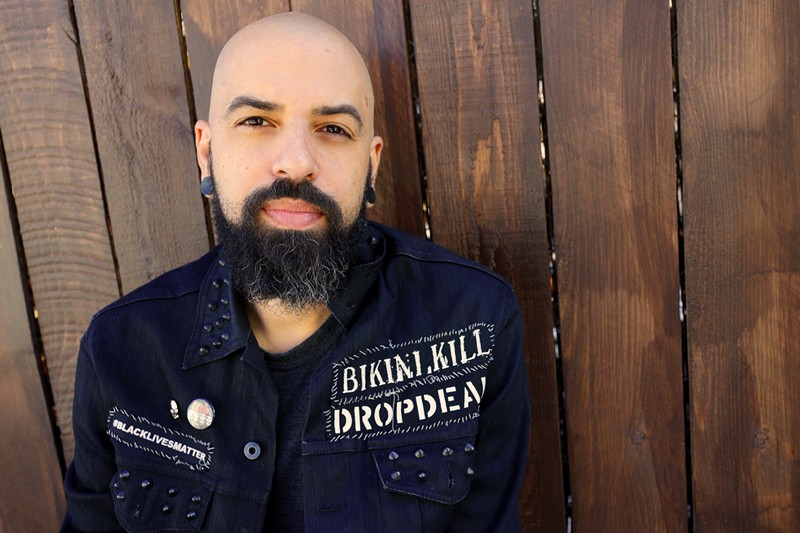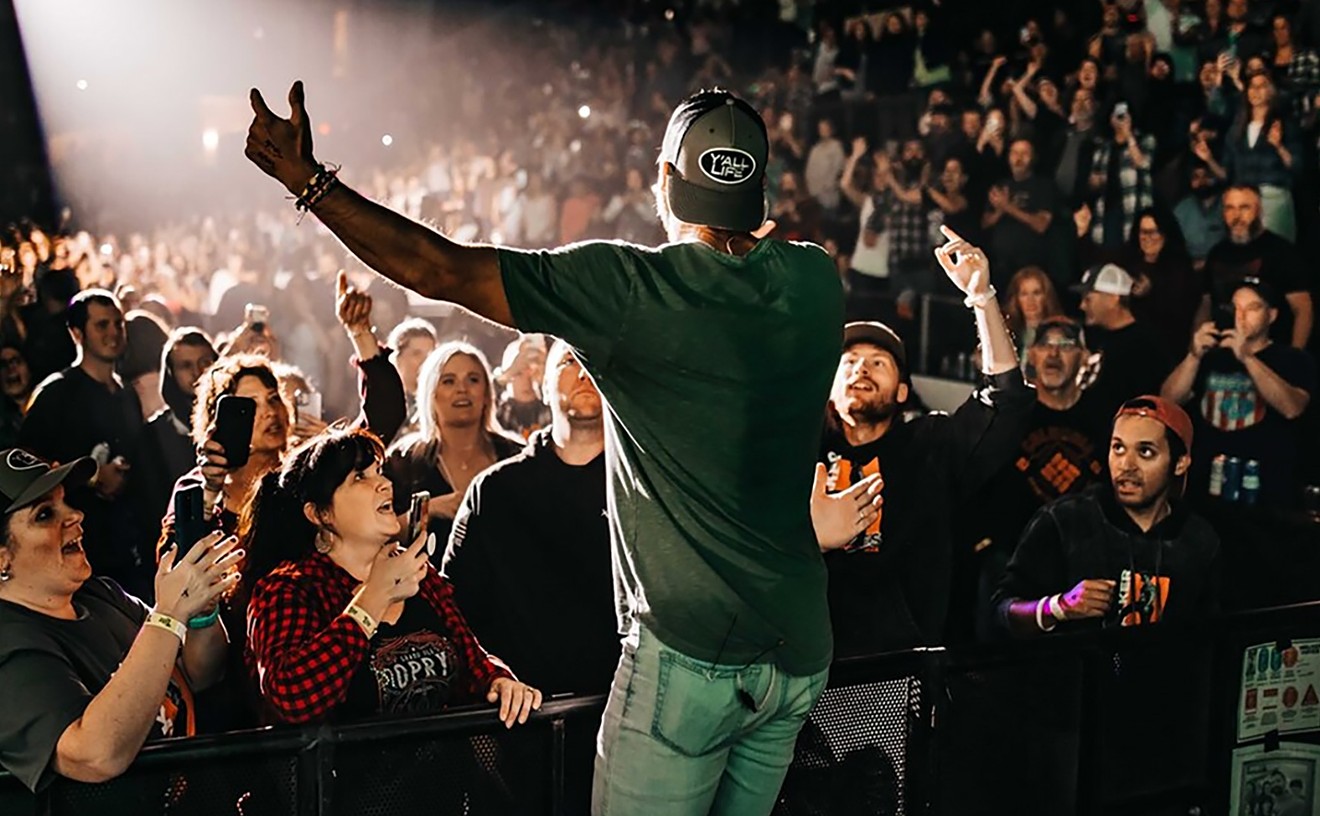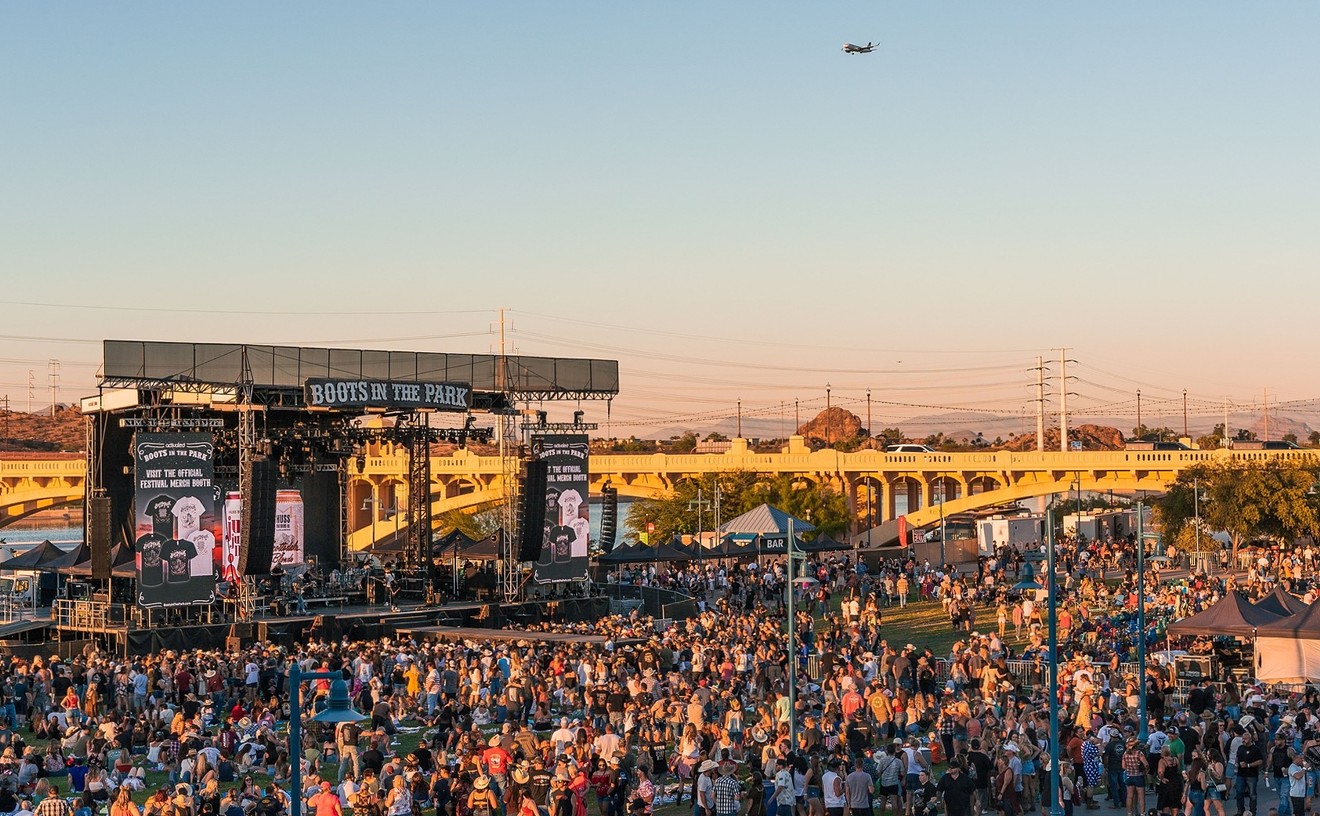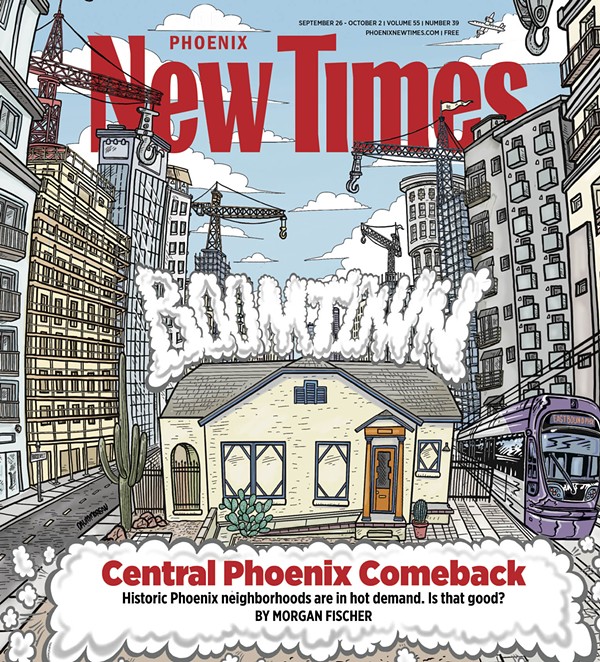The Los Angeles native appears at screenings nationwide, whether it's at a DIY venue or a prestigious university. Spooner will be introducing the cult classic at FilmBar on Sunday, May 5, and will be part of a panel afterward hosted by local artist Andy Warpigs titled “Being A Minority in a Minority Culture.” (There is an additional screening on Friday, May 3, with performance art and spoken-word performances by local artists.)
Warpigs says he's excited to discuss the film with Spooner. Afro-Punk played a profound role in the local folk-punk musician’s life, allowing him to view a world he thought he could only access at events like Vans Warped Tour.
“I had been drawn to heavy metal and anti-authoritarianism, but
It's a great source of pride for Spooner to hear a story like Warpigs’, but he was initially shocked when people outside of the punk scene also said they could relate to the film. Afro-Punk deals with themes that many people of color in white spaces deal with: stereotypes, identity, interracial dating, and alienation.
“Sometimes," he says, "despite the things around us telling us that we don’t belong, we have to sift through and find the larger voice."
Punk music empowered the filmmaker in a very real and personal way. Disregarding how others felt about him being in their space, Spooner wanted to show that there were people like him living outside the traditional ideas of blackness. Looking back, he describes making the film as a two-year-long therapy session.
“I was also seeking validation,” he remembers. “It really helped me in the realm of my identity.”
Spooner, who was living in New York City at the time, had no idea how to make a film. He searched through message boards for months on an early-2000s dial-up connection looking for people to interview. Music plays an important part in Afro-Punk, but it's the stories of those in the audience that are at the forefront of the movie.
“It wasn’t important to me that people be in bands,” he says.”I believe firmly in the idea of no rock stars and nobody is more valuable than someone else because of one cool thing they’ve done.”
While he is happy to share the film with a new generation, Spooner has conflicted feelings about how the film resonates with them. If you watch the news, there are still many suffering at the hands of white supremacy.
“I don’t think [the film] would be relevant 16 years later if we had progressed,” he says.
In the years since Afro-Punk’s release, Spooner co-founded the Afropunk Festival, eventually parting ways with the company after conflicts over its direction. He also made the 2007 narrative movie White Lies Black Sheep. Currently, he works as a vegan tattoo artist and is creating a graphic novel based on his life discovering punk in eighth grade while growing up in the high desert of California.
“Comics are a pretty great medium,” he says. “I am able to take the things I’ve learned over the years and put them into one project.”
Afro-Punk. 10 p.m. Friday, May 3, and 6:30 p.m. Sunday, May 5, at FilmBar, 815 North Second Street; 602-595-9187; thefilmbarphx.com. Tickets for Friday's screening are $10 and Sunday's screening are $15 via thefilmbarphx.com.













